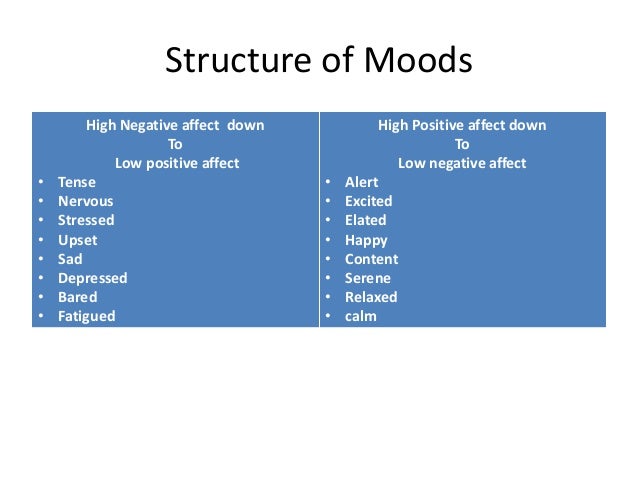

So, from a practical standpoint on many instruments, it certainly does "feel different" to play in different keys.
#Different moods and emotions professional
And unless you're talking about truly professional violinist, their ability to play in a key in tune with many flats compared to their ability to play in a key with a few sharps will vary significantly. For string instruments, one might consider that sharp keys often take advantage of open strings, which alters the sound. a key that is a half-step away (which will require much more tuning adjustments, will potentially change the tone slightly by using more valves, etc.). Modern instruments are mostly equipped with various keys and slides and such to help correct for the problems of playing in less-common keys, but there may still be subtle variance in tone, say, for brass instruments playing in a key they are pitched in vs. That last bit is still potentially an issue today: many instruments are still pitched in standard keys, which means they are easier to play (and easier to play in-tune) in some keys than in others. These aspects of tuning often influenced the choices of genres for writing music in particular keys, so different keys developed associations with emotions or extra-musical characters (e.g., some keys were considered appropriate for "martial" or military type music, often because military instruments were pitched in them, so marches were often written in them). Basically, there are good reasons why historically certain keys sounded different from others, due to the fact that unequal temperaments were more common, and thus some keys would sound more "in-tune" than others. There are other questions here that have dealt with this topic. Note: A test of this is also challenging because as a passage played on various instruments or voices is transposed through its register the sound will change slowly, so a test for a key-dependent effect might compare nearby keys in order to minimize those effects. I suppose subjects would have to be sorted in to those with and without perfect pitch to check for subconscious bias if you definitely know what key a passage is in, you may potentially be influenced by that knowledge. Question: Has anyone put this to the test in some objective way? Is there any objective evidence that different keys "feel different" or can impart different moods or feelings? This is something that I've long suspected, and hearing someone who's recognized as "good at" intuiting how music sounds to the general public carries at least some weight. You can turn any key into anything you want. When somebody starts talking about “this should be in such and such a key because such a key feels that way”, that’s bulls-t. In an advertisement in YouTube for composer Danny Elfman's master class viewable here the composer says:


 0 kommentar(er)
0 kommentar(er)
